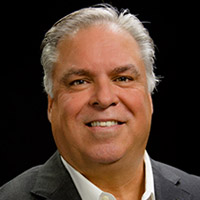A Guide to Family Business Decision Making

The topic of group decision making has spawned many academic studies, books, and white papers. It is never easy to get a group of human beings to make a decision together; it’s hard enough for a single individual to make a decision! Add to the mix more people with their cultural differences, values, needs, desires, positioning, and familial relationships and you have got a natural recipe for deadlock. We are often asked what the best way is for families to make important decisions together.
To answer this, let’s consider some of the overarching goals and pitfalls to avoid when making any major decisions together:
Goals
- Preserve Familial Relationships
- Build Cohesion
- Have Freedom from political warfare
- Avoid outside intervention in decision making
Avoid
- Conflicts and tensions/destruction of family
- Legal challenges/frustrated family members
- Marriage Conflict
- Feeling marginalized with “nothing to lose” thinking
- Battles and defections
Successful Models
Academia has given us a multitude of models for decision making in organizations and families. Here are six decision making styles frequently used in family businesses.
- The family leader decides unilaterally and announces the decision to everyone else.
- The decision is almost made, but the leader seeks reactions from others before announcing the final decision.
- The leader solicits input from everyone else before deciding.
- Majority vote with leader having one vote and no veto power.
- Everyone reaches agreement after discussion.
- The decision making is delegated to someone with clear parameters of freedom.
Most people, when asked, will say that majority rule is the most fair and proper way to make decisions. Americans naturally believe that our democracy is superior to any other political system ever devised so why not use it in our family? Yet, consider how you would feel after a presidential election in which your candidate lost. You are likely to experience a range of emotions ranging from mildly annoyed to furious.
Now, imagine being in the minority in a family or family business decision that affects you on a deeply personal level. What if a decision you strongly disagreed with was forced on you against your will? How well would that work in a family setting? Are you starting to see the problem with autocratic and majority decision making styles? Some people or groups of people are inevitably going to be disappointed.
What?!
Experience has shown that the best way to make decisions in families is to choose Style #5: Consensus. “What?!” you might be thinking. “How can anyone get anything done? I could never get my family to agree on what to have for dinner, let alone the direction of our business.” Without a doubt, building consensus in a family takes a lot of time, and energy, and requires patience and good communication skills, but it’s very much worth the effort!
Consensus is the only one of the five decision making styles that simultaneously builds unity, maintains unity, requires unity, and creates a family of listeners and collaborators.
Nordstrom is a well-known family business which has achieved tremendous success through the use of a consensus style of decision making. For the last 69 years they have had co-presidents, a leadership method that requires unanimous decisions in order to move forward. Given Nordstrom’s history of success and strong brand, that’s quite a recommendation for the consensus style, don’t you think?
WHO SHOULD GET A VOICE IN FAMILY DECISION MAKING?
Here are some recommended qualifications to consider when deciding if a family member is ready to be included in major family business decisions:
• Are they emotionally mature?
• Do they contribute to the process?
• Are they flexible?
• Are they informed?
• Are they prepared?
• Are they trusting and trustworthy?
• Are they able to put needs of the group ahead of needs of self?
Conclusion
As you can see, armed with the right tools and the right attitude, family decision making does not need to be contentious. To the contrary, it can have a tremendous unifying effect on your family while it facilitates decisions that increase the long-term success of the family and its enterprises.
We hope you found this article about Decision Making in Your Family Business helpful. If you have questions or need expert tax or family office advice that’s refreshingly objective (we never sell investments), please contact us or visit our Family office page or home page www.Groco.com. Unfortunately, we no longer give advice to other tax professionals gratis.
Considerately yours,
GROCO, GROCO Tax, GROCO Technology, GROCO Advisory Services, GROCO Consulting Services, GROCO Relationship Services, GROCO Consulting/Advisory Services, GROCO Family Office Wealth, and GROCO Family Office Services.
The Business of Banking | Steve Tessler
About Steve Tessler Stephen Tessler, a resident of Oakland; has served as an Executive Vice President and Director of Sales of the Bank since 2007. Previously, Mr. Tessler served as a Manager of Business Development and Marketing for Diablo Valley Bank. Mr. Tessler has a degree from San Jose State & Golden Gate University.…
The Tech Museum of Innovation | Tim Ritchie
About Tim Ritchie Tim Ritchie has transformed The Tech Museum of Innovation into a vital community resource that excites and engages people of all ages with programs that help them discover their own problem-solving power. Under Ritchie’s leadership, The Tech has developed new partnerships with schools, created new teacher training programs, and increased its…
Demand Acceleration | Rajiv Parikh
About Rajiv Parikh Rajiv Parikh is the CEO of Position, an integrated digital marketing firm that drives brand visibility and new customer acquisition for technology-driven brands. Position² has operations in the US and Asia with clients from around the world. Their 200 person team combines advertising, marketing, product & technology expertise. The company is…
Building Communities and Balance In Life | John Dutra
About John Dutra John J. Dutra was appointed Chief Executive Officer in 2007. As CEO, he is committed to building on the company’s unrivaled reputation of partnering with local entities, political leaders, property owners and builders. John strongly believes in providing quality, personal integrity and a high level of service in all endeavors. From…




